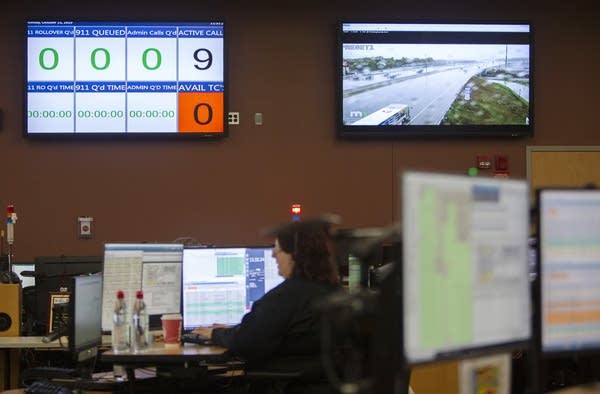What happens when someone in St. Paul calls 911?

A monitor shows the number of active calls at the Ramsey County Emergency Communications Center in St. Paul on Oct. 21, 2019.
Christine T. Nguyen | MPR News
Go Deeper.
Create an account or log in to save stories.
Like this?
Thanks for liking this story! We have added it to a list of your favorite stories.


